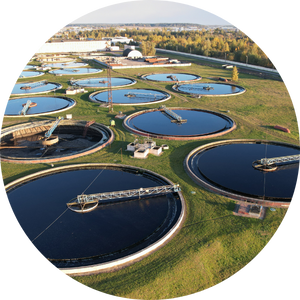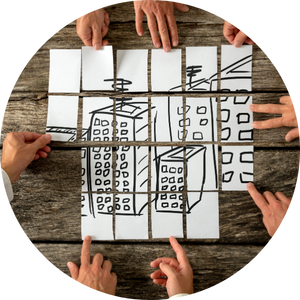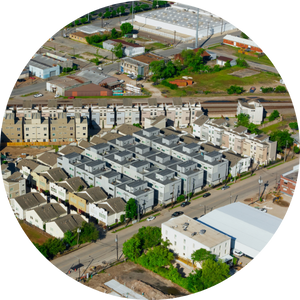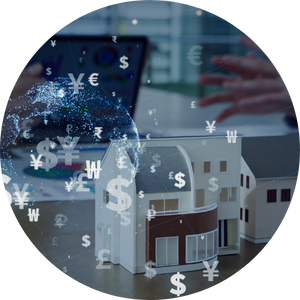
Smart Cities Development
- Designing and implementing smart city solutions to optimize urban infrastructure and services, including transportation, energy, water, waste management, and public safety.
- Leveraging Internet of Things (IoT) sensors, data analytics, and real-time monitoring systems to improve traffic flow, reduce energy consumption, and enhance urban livability.
- Collaborating with local governments, utilities, and technology partners to pilot and scale innovative smart city projects.
Renewable Energy Infrastructure
- Developing renewable energy infrastructure projects, such as solar farms, wind farms, and hydroelectric facilities, to reduce reliance on fossil fuels and mitigate climate change.
- Providing end-to-end services, from site selection and feasibility studies to engineering design, construction, and operation of renewable energy assets.


Transportation and Mobility Solutions
- Designing and deploying transportation infrastructure projects to improve mobility, accessibility, and safety for commuters and travelers.
- Developing multimodal transportation systems that integrate public transit, shared mobility services, cycling infrastructure, and pedestrian-friendly urban design.
- Implementing intelligent transportation systems (ITS) for traffic management, congestion pricing, and dynamic routing to optimize transportation networks and reduce emissions.
Digital Infrastructure and Connectivity
- Building and upgrading digital infrastructure, including broadband networks, 5G wireless infrastructure, and satellite communication systems, to support high-speed internet access and digital connectivity.
- Expanding broadband coverage to underserved rural and remote areas through public-private partnerships, last-mile connectivity initiatives, and satellite internet deployment.
- Promoting digital inclusion and bridging the digital divide by providing affordable internet access, digital literacy training, and access to online services and resources.


Water and Wastewater Management
- Developing sustainable water infrastructure projects to ensure reliable access to clean water and effective wastewater treatment.
- Implementing water conservation measures, leak detection technologies, and smart irrigation systems to optimize water usage and reduce water losses.
- Investing in decentralized wastewater treatment solutions, such as onsite sanitation systems and greywater recycling, to improve sanitation and mitigate pollution.
Resilient Infrastructure Planning
- Conducting resilience assessments and risk analyses to identify vulnerabilities and enhance the resilience of critical infrastructure systems to natural disasters, climate change, cyber threats, and other hazards.
- Incorporating resilient design principles, redundant systems, and adaptive strategies into infrastructure projects to enhance their ability to withstand and recover from disruptions.
- Developing emergency response plans, business continuity strategies, and disaster recovery measures to minimize the impact of infrastructure failures and ensure rapid recovery.


Green Building and Sustainable Design
- Promoting green building practices and sustainable design principles in the construction and operation of buildings and infrastructure projects.
- Designing energy-efficient buildings, green roofs, passive solar heating systems, and other sustainable features to reduce energy consumption and environmental impact.
- Pursuing green building certifications, such as LEED (Leadership in Energy and Environmental Design), to demonstrate environmental stewardship and attract eco-conscious tenants and investors.
Infrastructure Financing and Investment
- Structuring innovative financing mechanisms, such as public-private partnerships (PPPs), green bonds, infrastructure funds, and impact investments, to fund infrastructure projects.
- Advising governments, investors, and project sponsors on project financing, risk allocation, and revenue generation strategies for infrastructure investments.
- Facilitating collaboration between public and private sector stakeholders to mobilize capital, leverage resources, and unlock investment opportunities in infrastructure development.


Urban Regeneration and Brownfield Redevelopment
- Revitalizing urban areas and repurposing underutilized or contaminated sites through brownfield redevelopment projects.
- Collaborating with local communities, developers, and environmental experts to assess site contamination, remediate environmental hazards, and redevelop brownfield sites for productive use.
- Integrating sustainable design principles, mixed-use development concepts, and community engagement strategies to create vibrant, inclusive, and environmentally sustainable urban spaces.
Infrastructure Asset Management and Maintenance
- Implementing asset management systems and predictive maintenance strategies to optimize the lifecycle performance of infrastructure assets, including roads, bridges, utilities, and public facilities.
- Leveraging remote sensing technologies, drones, and predictive analytics to assess asset condition, prioritize maintenance activities, and extend asset service life.
- Developing resilience-based asset management plans to proactively address aging infrastructure, mitigate risks, and ensure long-term sustainability and functionality.




